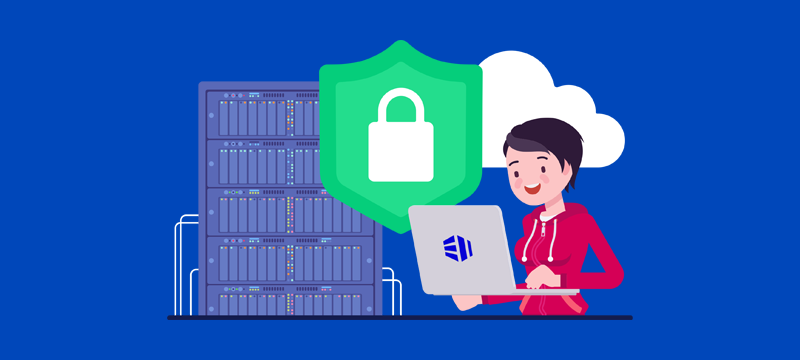When it comes to hosting a website, the underlying infrastructure plays a crucial role in ensuring optimal performance, reliability and scalability. While most people are familiar with personal computers (PCs) as devices for daily work and personal tasks, there are significant differences between a PC and a web server. In this post, we will discuss what those differences are and explain why a server is essential for hosting websites.
- Hardware
Although both servers and PCs are types of computers, they are designed to do different jobs and so have different hardware architectures to meet their specific requirements. Personal computers typically use high-performance processors, graphics cards and other components to deliver a responsive user experience. Servers, meanwhile, are built with robust and scalable hardware to handle concurrent requests from multiple clients, ensuring consistent performance and stability. Compared to a PC, a server often features multiple processors, significantly higher memory capacity, redundant power supplies and RAID storage systems for enhanced data protection. - Operating systems and software
Another key difference between servers and PCs lies in the operating systems (OS) and software they run. PCs generally use consumer-standard OS like Windows or macOS. These are optimised for individual users’ needs, such as web browsing, gaming, productivity or multimedia. On the other hand, servers rely on server-level OS such as one of the various open-source Linux distributions (e.g., Ubuntu, Debian and Fedora) or the Windows Server editions.
Server operating systems are specifically designed to handle network-based tasks, manage resources efficiently and provide robust security measures. Additionally, servers host specialised software like web servers, database management systems and caching mechanisms to optimise website performance and facilitate smooth operations. - Connectivity and network infrastructure
Unlike PCs, which are typically connected to the internet via residential broadband connections, servers require high-speed, dedicated internet connectivity. They are usually located in data centres equipped with redundant network connections, advanced firewalls and intrusion detection systems to ensure uninterrupted connectivity and protect against cyber threats. The superior network infrastructure of servers allows for fast and reliable data transfer, essential for serving website content to users across the globe. - Scalability and resource management
Websites often experience varying levels of traffic, depending on factors such as the time of day, ongoing marketing campaigns or seasonal events, like the run-up to Christmas or Black Friday. Servers are specifically designed to handle scalability challenges efficiently. This means they are able to add more resources, such as memory, storage or processing power, to cope with fluctuations in demand. Although you can configure PCs to prioritise different workloads, they cannot do this as efficiently as a server, nor do they have the resources needed to cope with large volumes of web traffic.
Server virtualisation technologies, meanwhile, which can be found in cloud-based shared hosting, VPS (virtual private server) and cloud server solutions, enable multiple virtual servers to run on a single physical server. This can be used to optimise resource utilisation and reduce costs. These resource management capabilities combined with this level of scalability make virtual servers ideal for hosting busier websites as they ensure smooth performance even during peak traffic periods.
It is possible to use virtualisation on a personal computer. Similar to partitioning your hard drive, it would create separate, virtual, independent environments that can run their own operating systems and applications. This means you could host your website in one environment and keep the other for running your normal PC software. However, it would have limited resources and would need to remain running all day, every day, to keep your website online. - Reliability and redundancy
To minimise the risk of downtime and data loss, servers prioritise reliability through redundancy measures, e.g., some storage space and resources are deliberately left unused in case of urgent need. Servers are also equipped with redundant components, such as power supplies, hard drives and network interfaces, which enable continuous operations even if a component fails.
Additionally, they employ techniques like RAID (Redundant Array of Independent Disks) to protect against data loss by replicating data across multiple hard drives. This means that if one drive fails or is compromised, another copy of your website can continue to function. By contrast, PCs lack these redundancy features and are more prone to hardware failures, leading to potential disruptions in website availability.
Conclusion
While it is possible to host a website on a PC, ideally, it should be hosted on a web server. Servers provide the robust hardware architecture, specialised software and network infrastructure necessary to deliver reliable, scalable and high-performance hosting solutions. From handling concurrent requests to managing resources efficiently, they play a vital role in ensuring seamless website operations, even during periods of increased traffic. This ensures that you can host your website with confidence, provide visitors with a great user experience and make the most of your online presence.
Looking for great hosting? Check out our cloud-powered, Web Hosting with cPanel.


